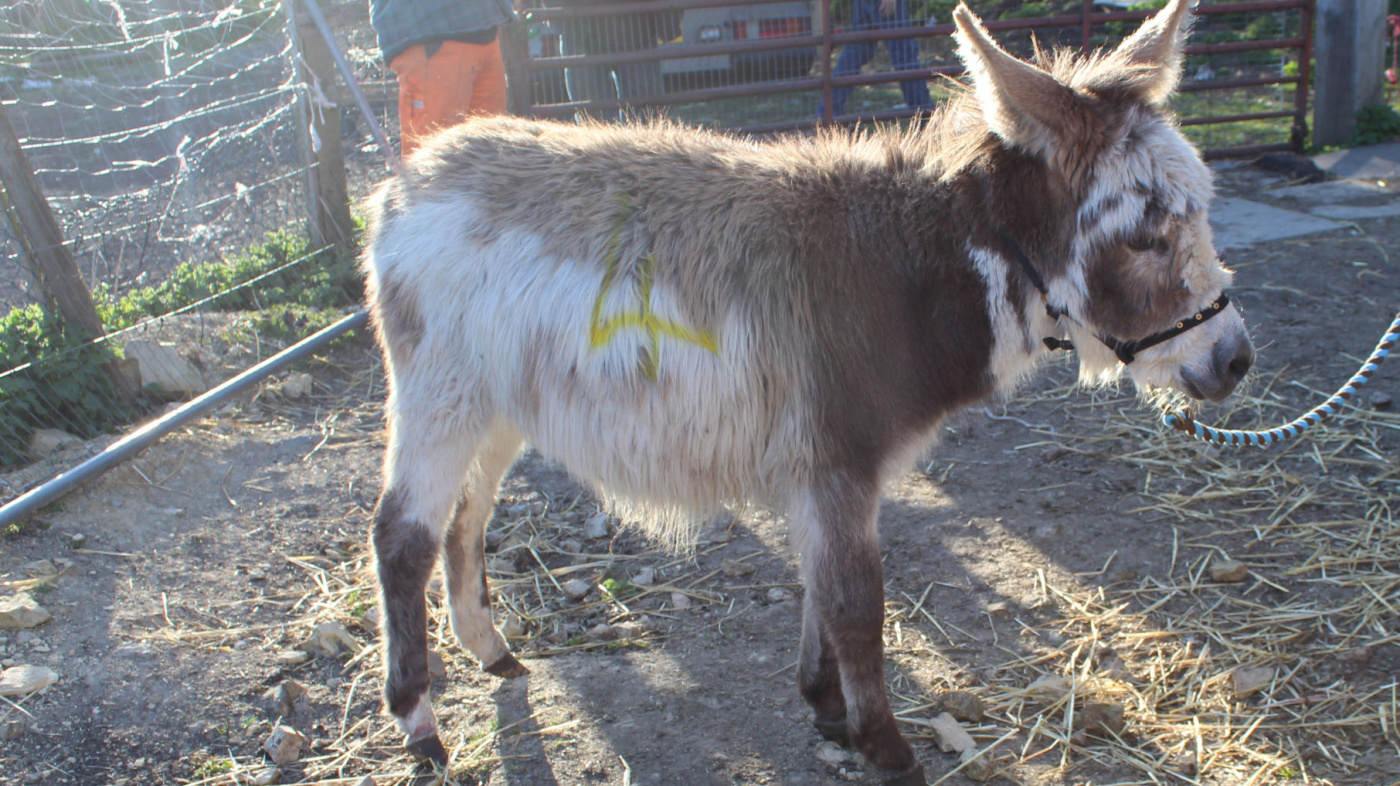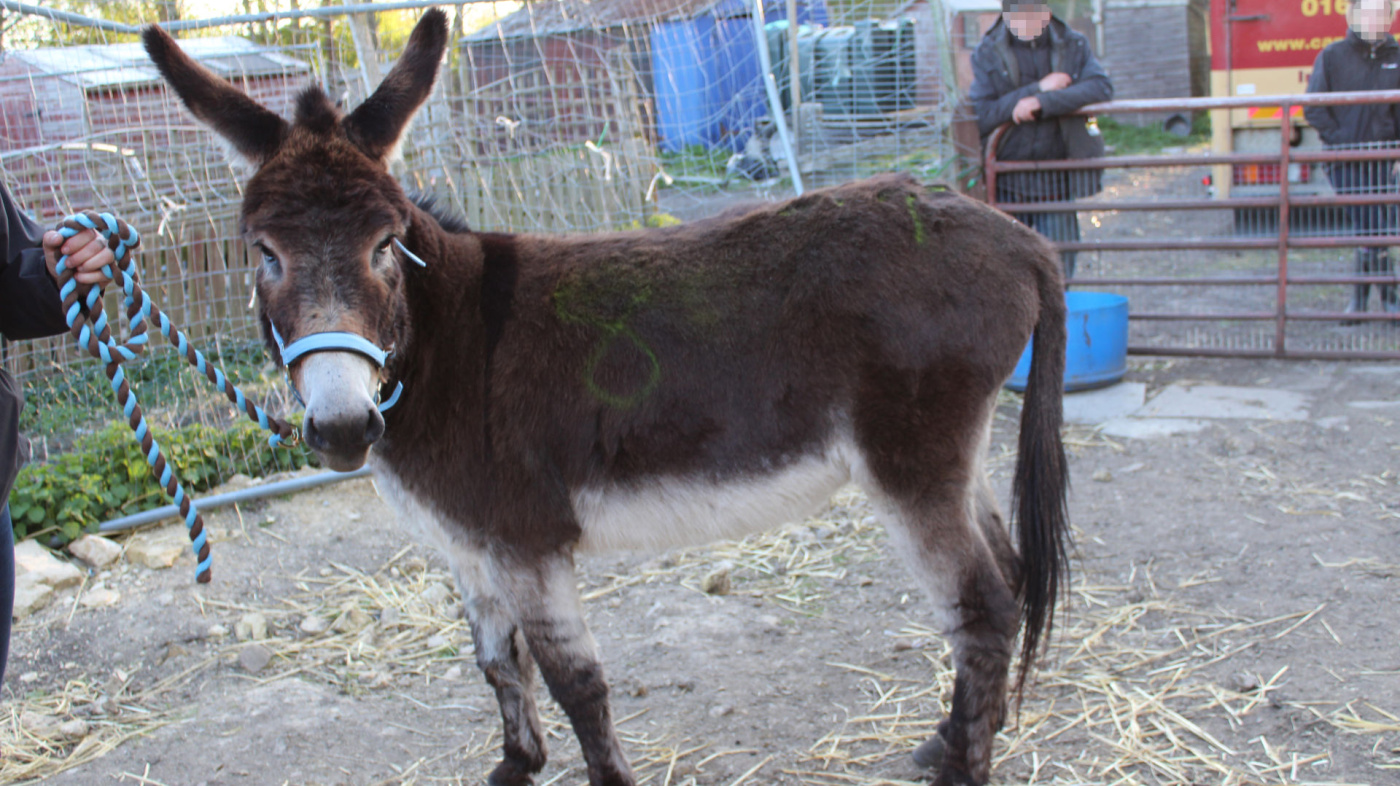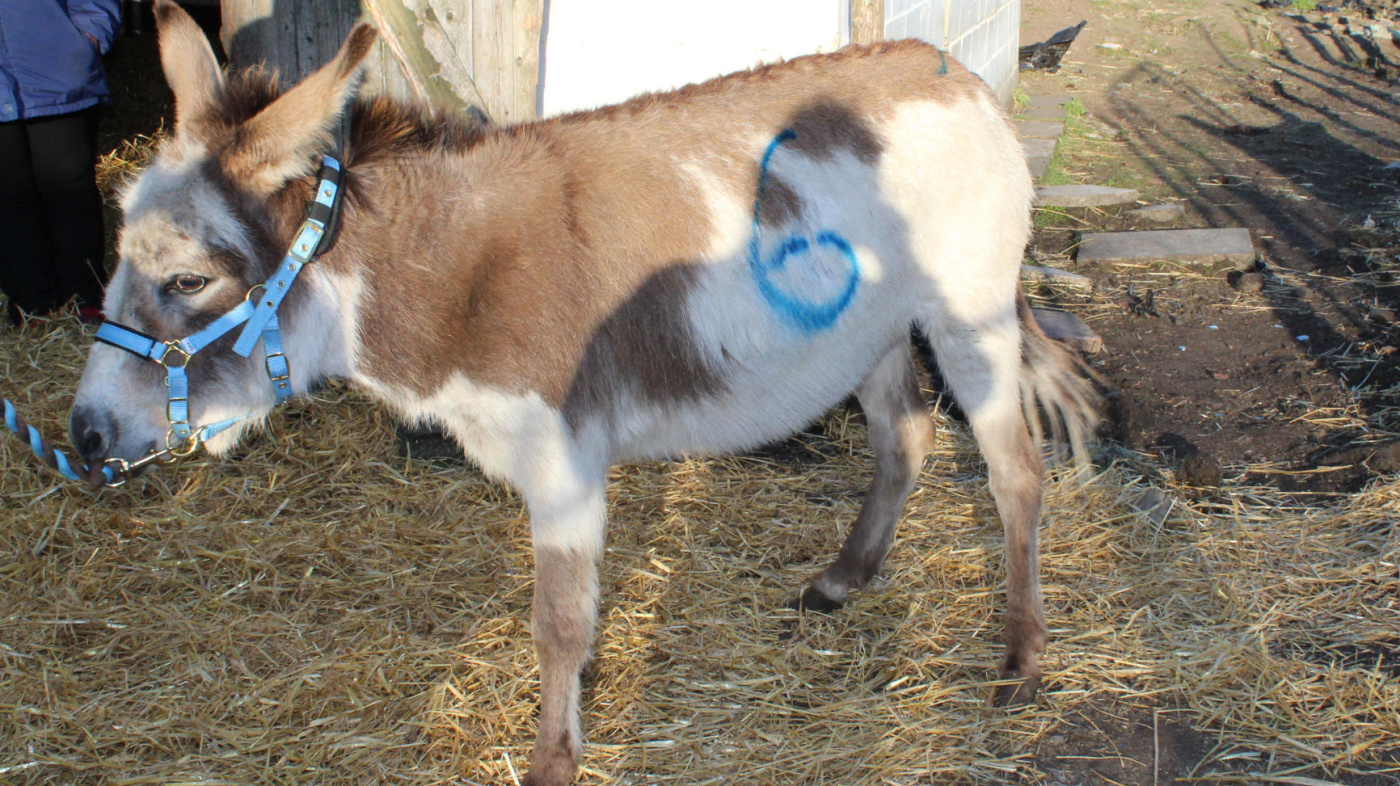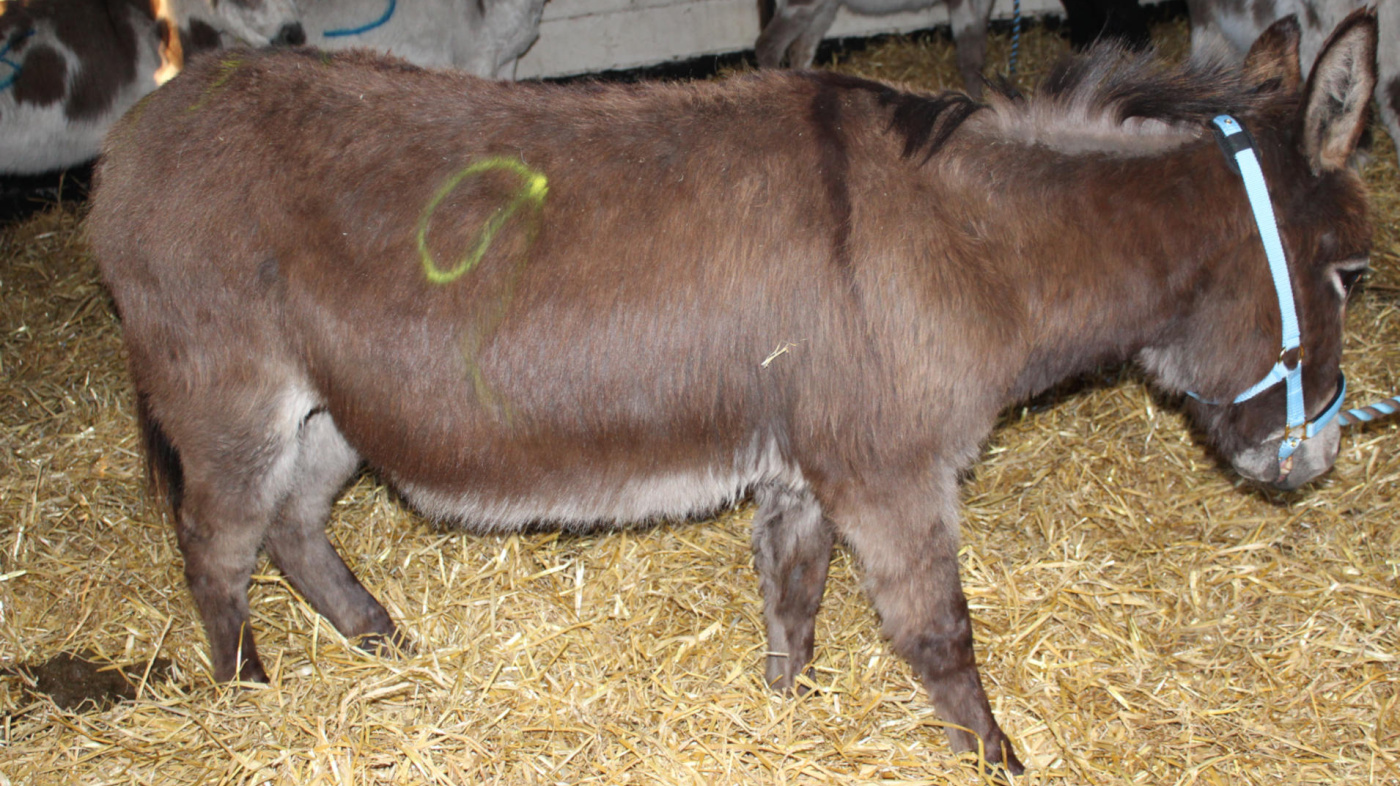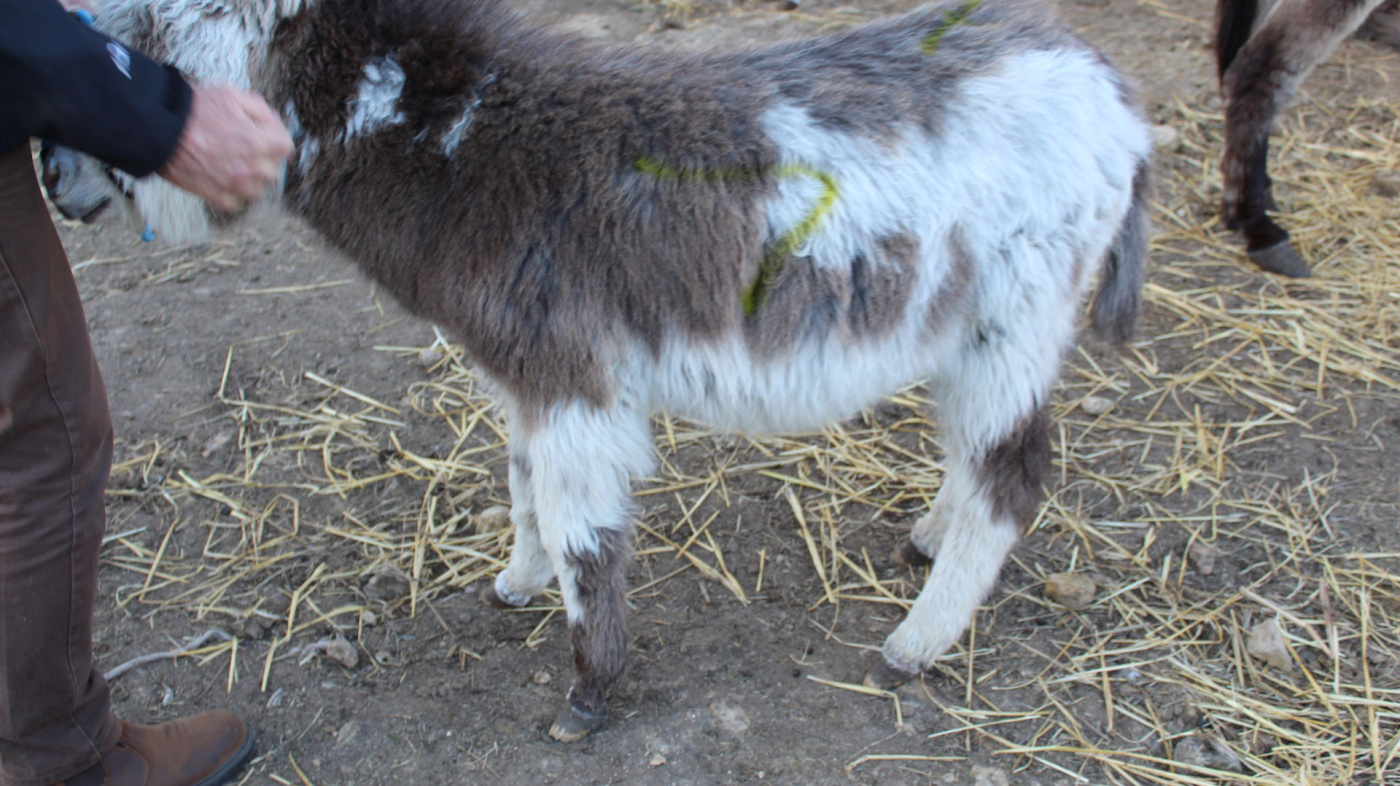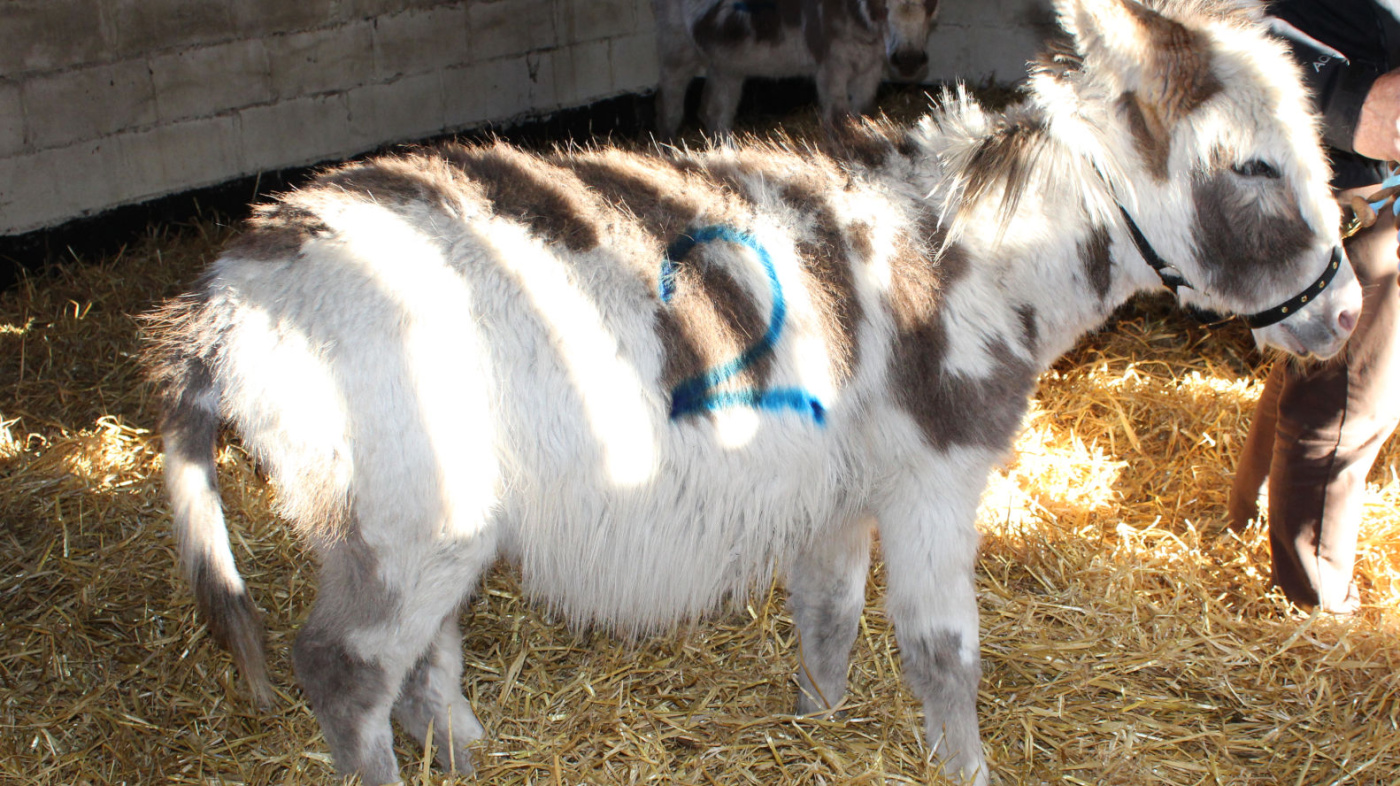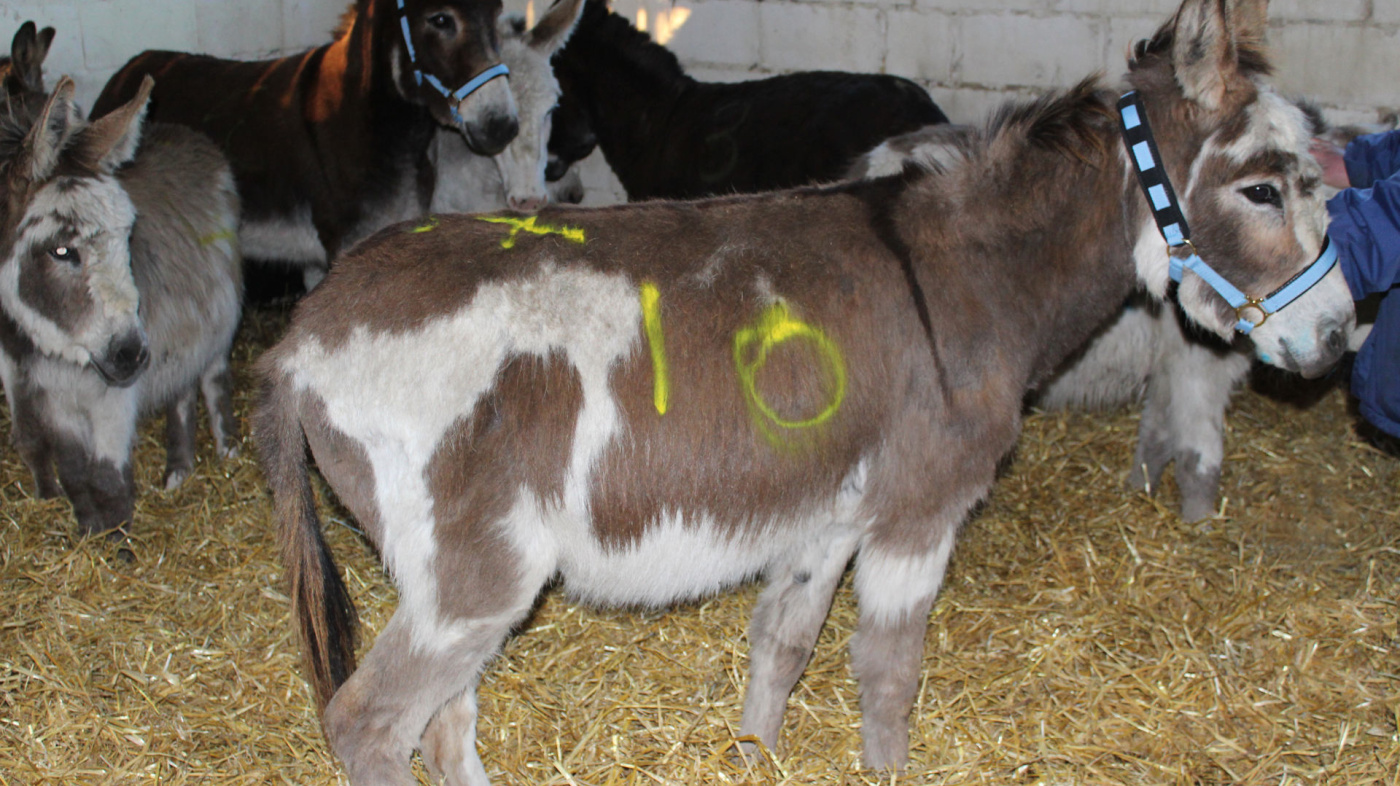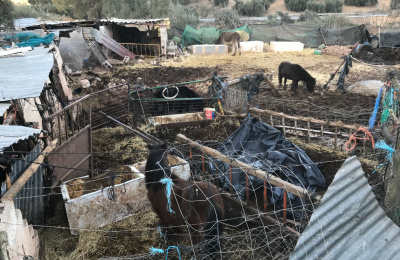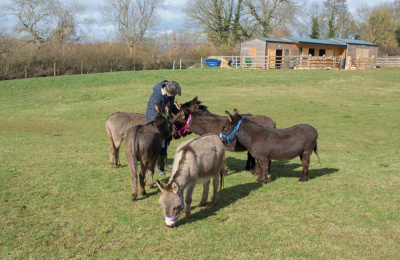A donkey owner has been convicted of numerous animal welfare offences after failing to adhere to measures set out by The Donkey Sanctuary. 14 donkeys have been rescued from their miserable conditions.
Following a report from a concerned member of the public about a group of donkeys, one of The Donkey Sanctuary’s welfare advisers, Charly Wain, visited the herd at a smallholding in the North East of England.
There she found the donkeys sharing a muddy field; they had very little food, limited grazing, and no hardstanding to help keep the donkeys’ hooves dry and in good condition. The fencing was unsafe, and the field was full of hazards including plastic, rubbish and old farm machinery.
The 14 donkeys, including three young foals, were standing with their hooves in thick mud and appeared to be underweight. “A large, dark-brown donkey, now called Archie, caught my eye as he walked towards me,” says Charly. “His front right hoof was long and beginning to deviate outwards. Some of the other adults also had long hooves, and their coats were patchy and uneven.”
Charly returned a month later to find that, disappointingly, little had changed. On this occasion she met by chance the man who took care of the donkeys, and expressed her concerns.
Conditions for donkeys remain dire
Soon after, Charly was back – this time with two colleagues from WHW, plus a veterinary surgeon and an RSPCA inspector. On this occasion the owner of the animals also turned up. Against our guidance, no measures had been put into place to improve their welfare. Charly was further disheartened upon getting a clearer view of the donkeys’ feet: “The hooves were curving upwards on some of the donkeys and many of the hooves had begun to twist and deviate.”
Each donkey was patiently caught for inspection and to be photographed as evidence. Many of them, including the foals, were clearly unused to being handled.
Charly recalls: “Hope, who was a youngster at the time, was very bold and very interested in what was happening on the day. Other donkeys were not so bold. Blue was very worried; she did not want to be caught or handled. She concerned me because her hooves were particularly overgrown and deviated, and she also had a foal at foot.”
Herd in safe hands
After the vet’s examination, the owner agreed to sign over all the donkeys to the RSPCA. Within hours, they were removed from the site and were on their way to one of The Donkey Sanctuary’s holding bases.
Once settled, each donkey was given a thorough examination by the vet and The Donkey Sanctuary’s head of welfare, Hannah Bryer. Using the x-rays as a guide, the farrier was then able to begin the task of trimming and caring for their hooves, and the group were put onto an appropriate diet to help them gain weight.
After five months of dedicated care, they were fit to travel south to The Donkey Sanctuary’s New Arrivals Unit in preparation for joining one of our herds.
A brighter future for the desperate donkeys
Thanks to the direct intervention of The Donkey Sanctuary and the support of WHW and the RSPCA, the 11 donkeys and three foals are now enjoying life among other donkeys in a safe environment.
Charly adds: “The donkeys would have continued to deteriorate if all organisations involved hadn’t intervened when they did. They now have a happy, healthy future ahead of them.”

Following a formal investigation, the owner was charged with numerous offences under the Animal Welfare Act. She pleaded guilty in court and was disqualified from keeping donkeys for five years and ordered to pay costs and fines totalling £605.
Hannah Bryer offered her appreciation to the rescue team: “Huge thanks as usual to everyone involved in bringing this case to a positive conclusion for the donkeys, and giving them the chance of a happy future.”
